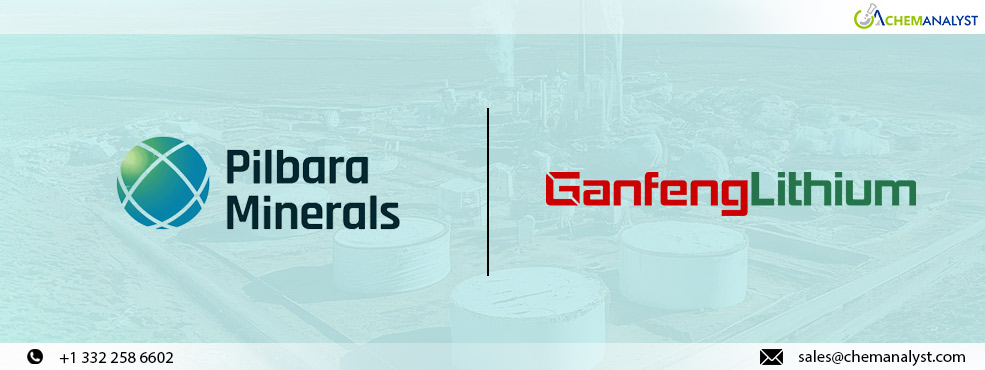Welcome To ChemAnalyst

Pilbara Minerals, an Australian company, has entered into an agreement with its Chinese customer, Ganfeng Lithium, to conduct a feasibility study on the construction of a lithium conversion facility capable of producing 32,000 metric tons per year. The facility, which could generate lithium carbonate or hydroxide, aims to be operational by the first quarter of 2025. Both parties are exploring various locations for the plant, including Australia, as part of their strategy to diversify the geographical footprint of the battery chemicals supply chain.
In an exchange filing, Pilbara Minerals, Australia's largest independent lithium miner, revealed its existing partnerships, including a joint venture with South Korea's POSCO for a lithium hydroxide plant and collaboration with Calix Limited to construct a midstream lithium chemicals demonstration plant in Western Australia. The feasibility study will also assess the potential production of midstream lithium chemicals to streamline transportation and reduce carbon emissions.
According to Pilbara Minerals, initial discussions with several countries have shown significant interest in establishing lithium chemical production, with potential incentives such as economic, taxation, and funding benefits, as well as assistance with land acquisition, permitting, and approvals.
Should the joint venture move forward, both parties intend to share ownership of the project on a 50:50 basis. However, Ganfeng is open to reducing its stake, depending on the advantages offered by the US Inflation Reduction Act subsidy scheme, which includes sourcing requirements from the United States.
Pilbara Minerals is ramping up its spodumene production to reach 1 million tonnes per year. It has committed to supplying 300,000 tons of spodumene annually for the project through a 15-year offtake agreement. In the event that final approval for the project is not obtained, Pilbara Minerals has agreed to supply an additional 100,000 tons of spodumene annually to Ganfeng Lithium from 2027 to 2030, in addition to the existing offtake agreement.
Furthermore, Pilbara Minerals plans to make a decision in the June quarter regarding the expansion of production capacity beyond 1 million tonnes per year, as stated in the company's filing with the Shenzhen Stock Exchange.
Pilbara Minerals stands out as the premier ASX-listed lithium enterprise, boasting full ownership of the world's largest independent hard-rock lithium operation. Situated in Western Australia's Pilbara region, the Pilgangoora Operation is renowned for its production of spodumene and tantalite concentrates. The operation's impressive scale and exceptional quality have garnered the attention of a consortium of esteemed global partners, including Ganfeng, General Lithium, POSCO, Yahua, and Yibin Tianyi.
Ganfeng is a prominent global player in the lithium sector, boasting a wide-ranging product portfolio encompassing lithium chemicals, lithium metals, and lithium batteries. With ownership of several facilities, Ganfeng ranks among the world's largest processors of lithium chemicals, equipped with advanced lithium extraction technology. Established in 2000, Ganfeng is publicly listed on both the Shenzhen Stock Exchange and the Hong Kong Stock Exchange (HKEX: 1772, SZSE: 002460).
We use cookies to deliver the best possible experience on our website. To learn more, visit our Privacy Policy. By continuing to use this site or by closing this box, you consent to our use of cookies. More info.
